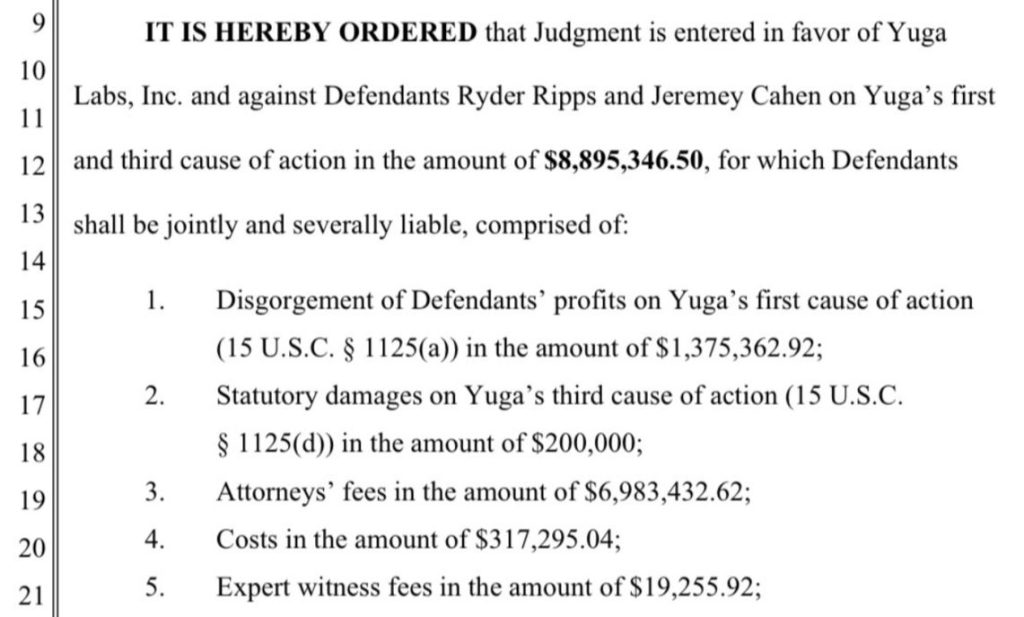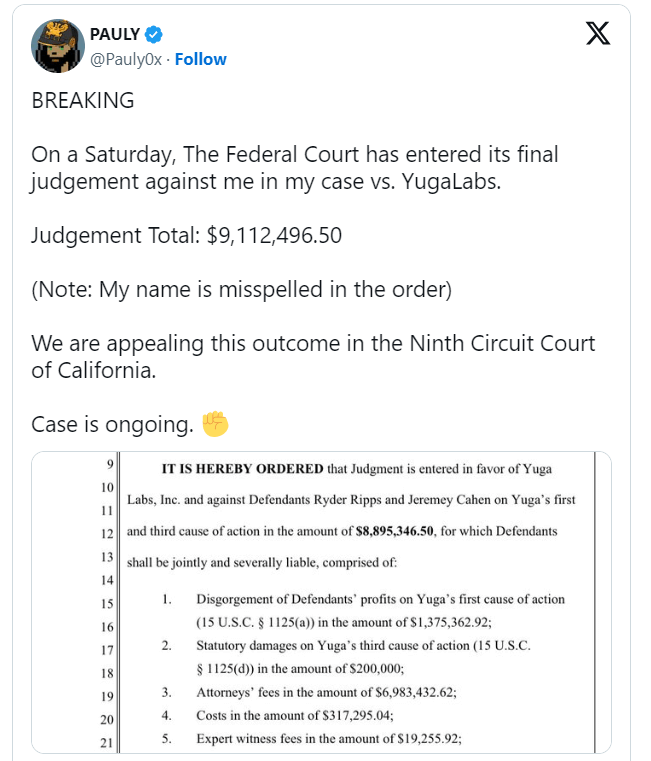In a significant legal development within the cryptocurrency and NFT sphere, a judge has dismissed Ryder Ripps’ counterclaims against Yuga Labs, the creators of the renowned Bored Ape Yacht Club (BAYC) NFT collection. This ruling not only marks a pivotal moment in the ongoing legal battle between the two parties but also underscores the complexities of copyright law in the digital assets domain. Ordered to pay $9 million, Ripps faces a substantial financial setback, spotlighting the high stakes involved in NFT litigation. As coinhackz.com continues to navigate through the latest cryptocurrency news and technology updates, we delve into the details of this case and its implications for the NFT community.
The Case at Hand

The legal dispute centers around Ripps’ creation and sale of NFTs that closely resembled those from Yuga Labs’ Bored Ape Yacht Club series, leading to accusations of copyright infringement. Ripps defended his actions by filing counterclaims that positioned his work as a form of commentary and parody, invoking the First Amendment and fair use doctrine. However, the judge’s decision to reject these counterclaims and enforce a $9 million payout signifies a clear stance on the protection of original NFT artworks against replication under the guise of parody or criticism.
Implications for the NFT Market
- Copyright Enforcement: This ruling highlights the enforceability of copyright laws in the digital realm, particularly within the burgeoning NFT market. It sets a precedent that could deter future attempts to replicate or modify existing NFTs without permission, reinforcing the copyright holder’s rights.
- Legal Precedents: The outcome of this case establishes a legal benchmark for future disputes involving NFTs and copyright infringement. As the NFT market continues to grow, this case will likely serve as a reference point for artists, creators, and legal professionals navigating copyright issues.
- Market Integrity: By upholding the rights of original NFT creators, the ruling supports the integrity of the NFT market. It reassures artists and investors alike that the legal system recognizes and protects their ownership and creative rights, fostering a healthier environment for innovation and investment.
Ripps’ Response and Community Reaction

Ryder Ripps’ legal defeat and the subsequent financial penalty have sparked a wide array of responses from the NFT and broader cryptocurrency community. While some view the judgment as a necessary measure to protect creators’ rights and maintain market integrity, others fear it may stifle creative expression and commentary within the NFT space. Ripps’ approach to challenging Yuga Labs’ copyright claims has ignited a debate on the limits of parody, criticism, and freedom of expression in the digital age.
Conclusion
The judge’s decision to dismiss Ryder Ripps’ counterclaims against Yuga Labs and order a $9 million payout is a landmark moment in NFT copyright law. It emphasizes the legal protections available to digital artists and creators while highlighting the potential financial and reputational risks of infringing on these rights. As the NFT market evolves, this case serves as a crucial reminder of the importance of respecting copyright laws and the potential consequences of failing to do so. For the NFT community and stakeholders within the cryptocurrency ecosystem, the outcome of this legal battle offers valuable insights into the complexities of digital copyright enforcement and the ongoing effort to balance creative freedom with copyright protection.

